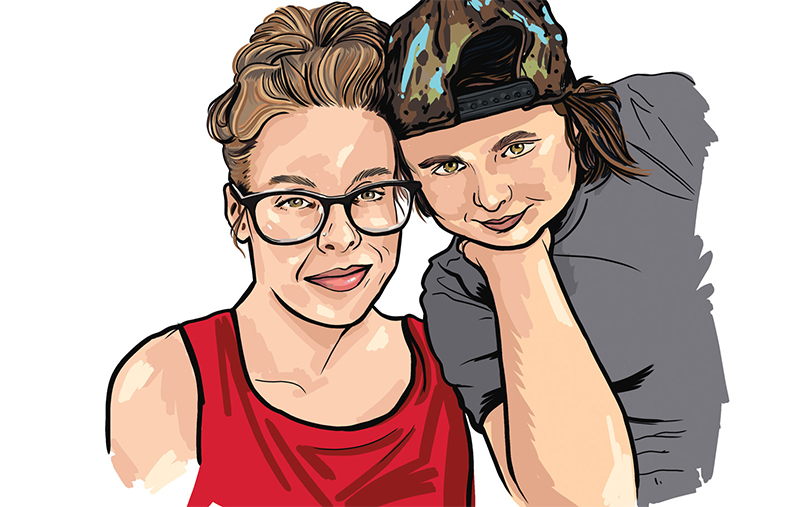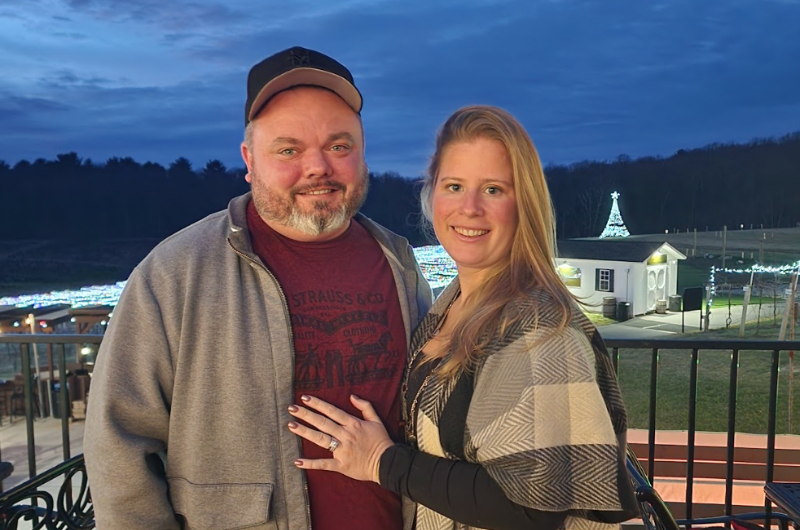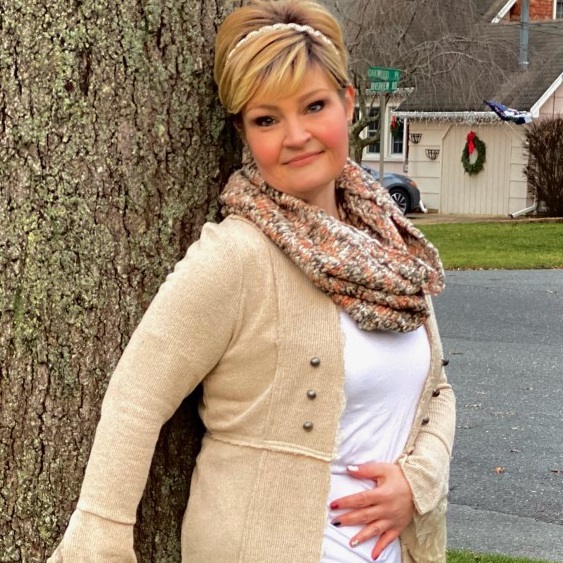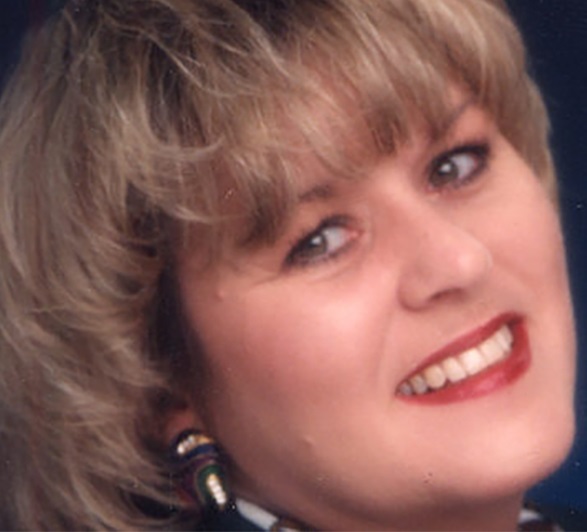

Typically, we photograph every patient appearing in HealthU. Because this story was planned during the surge of COVID-19, that contact would have been too risky. Instead, our team took a creative approach and replaced photo shoots with illustrated portraits of patients.
Jaclyn Tucker has always been a body-positive person. Having been overweight since about age 10, the now 38-year-old never really saw her weight as a problem that needed to be solved. She tried fad diets and exercise programs alongside her mother, but “I didn’t feel OK doing them,” says the
Belleville, New Jersey, resident. “People looked at weight loss as a vanity issue, so I never took it seriously because I didn’t feel fat or like my weight hindered me in any way.”
Several years ago, Jaclyn decided to think more seriously about weight loss when her weight got in the way of everyday life with her son, Gabriel. She took Gabriel, now 10, to a birthday party where the kids were riding go-karts. Parents were required to sit in the go-karts with their children, but Jaclyn couldn’t fit into the seat and got stuck trying to climb out.
“My son said, ‘That’s OK, I didn’t want to go anyway.’ But I knew he did,” she recalls. “I didn’t want to keep making him compromise because of my weight.” Although she had no other medical conditions, Jaclyn knew obesity could cause health problems like diabetes and high blood pressure in the future. “Heart attacks run in my family, and I wanted to prevent anything like that from happening,” she says.
Seeking Help
Because her mother had experienced severe complications from a gastric bypass procedure when Jaclyn was 16, she grew up wary of bariatric surgery. However, one of her friends had a lap band procedure at JFK University Medical Center, and Jaclyn has gone to JFK for all of her medical needs, including when she gave birth to her son. After talking to her friend and researching current bariatric procedures, Jaclyn knew she would be in good hands.
Her surgeon, Aram Jawed, M.D., FACS, FASMBS, recommended a vertical sleeve gastrectomy (VSG) due to Jaclyn’s age, the amount of weight she needed to lose and the fact that she had no preexisting conditions.
“There are three major bariatric procedures: laparoscopic gastric bypass, vertical sleeve gastrectomy and the lap band,” Dr. Jawed says. Jaclyn’s profile fit VSG because she wanted the metabolic benefits that a restrictive procedure like the lap band does not provide.
VSG addresses hunger hormones and the metabolic aspects of obesity. The stretchy portion of the stomach is removed, along with the hunger hormone called ghrelin, so the capacity of the stomach changes and the desire to eat is reduced.
While Jaclyn was confident in the procedure, Gabriel was concerned about whether she would have complications and require hospitalization—or worse. Knowing how important it was for both mother and son to feel confident about surgery, Dr. Jawed made sure Gabriel was part of the discussion.
“I explained to him that his mother was prohibited by her weight, and it was preventing her from being the mother she wanted to be for him,” Dr. Jawed says. “I also told him that bariatric surgery is less risky and has a lower morbidity and mortality profile than any other general surgery, and it’s minimally invasive.”
Adds Jaclyn, “Dr. Jawed sat down with [Gabriel] to answer all of his questions and made him feel so much better. I was so impressed that he did that.”
A Bright Future
Jaclyn’s surgery was successfully performed on September 18, 2018. Almost two years later, she has lost an impressive 153 pounds and maintains a healthy lifestyle. She follows her bariatric meal guidelines and works out three to four days a week.
Dr. Jawed’s patients, including Jaclyn, also have a regular follow-up schedule with him:
- Two weeks after surgery
- Four weeks after surgery
- Three months after surgery
- Six months after surgery
- One year after surgery
- Annually
Jaclyn recently saw Dr. Jawed for her two-year annual follow-up, and she knows that if she has questions about her meals, weight or any other concerns in the meantime, she can call him for help. “I feel 100 percent supported,” she says.
Dr. Jawed adds, “We like to see patients for life. We never leave you.”
Jaclyn is also using the knowledge she gained through this experience to help her son make healthy choices. They stay active together through activities like biking, walking and playing an exercise video game, and she is teaching him about nutrition.
“It’s never too early or too late to make a change,” she says. “Even small changes add up and make a huge difference.”
Next Steps & Resources
- Meet your source: Aram Jawed, M.D., FACS, FASMBS
- To make an appointment with Aram Jawed, M.D., FACS, FASMBS or another provider, call 800-822-8905 or visit our website
Find a doctor near me

Nurse Turns to Bariatric Surgery and Inspires Others

Forked River Woman Is Fit at 40 Thanks to Weight-loss Surgery

Weight Loss Surgery: All in the Family
